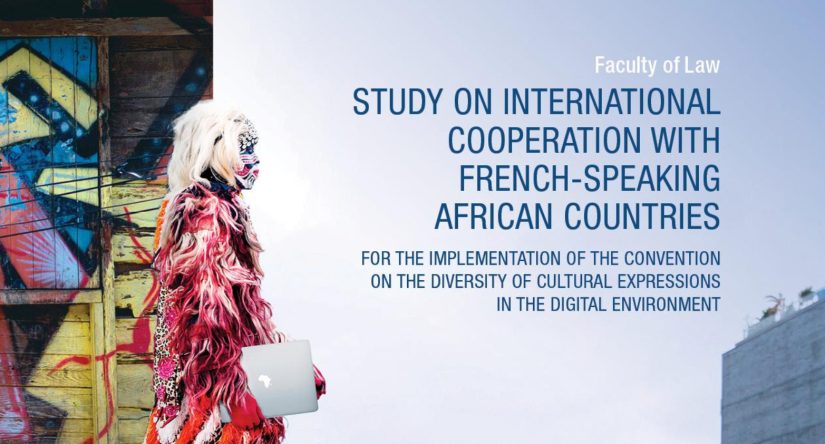
Study on international cooperation with French-speaking African countries for the implementation of the Convention on the Diversity of Cultural Expressions in the Digital Environment
This study carried out by the UNESCO Chair on the diversity of cultural expressions is the result of collective work. Six students associated with the Chair conducted extensive research on the five countries covered by the study: Benin, Burkina Faso, Côte d’Ivoire, Mali and Senegal. This research was conducted under the direction of Véronique Guèvremont (Professor at the Faculty of Law, Université Laval and Chairholder) and Ivana Otašević (Doctoral student at the Faculty of Law, Université Laval and Associate Director of the Chair). It was complemented by around 40 interviews with African experts or experts with in-depth knowledge of the African cultural context.
As stated in Quebec’s Digital Cultural Plan, the objectives of this study are as follows:
- contribute to reflection on the challenges of international cooperation related to digital technology; document the impact of digital technologies on the diversity of cultural expressions, particularly in countries of the South,
- stimulate reflection on the digital divide in the countries of the African French-speaking region and to define priorities for action with a view to development cooperation,
- respond favourably to Quebec’s commitments in terms of development cooperation, which are included in Article 14 of the 2005 Convention9
Following discussions with the Ministère dela Culture et des Communications du Québecand the Ministèredes Relations internationales et de la Francophonie, it was agreed that the study would focus on five French-speaking African countries: Benin, Burkina Faso, Côte d’Ivoire, Mali and Senegal.
The following study is divided into three parts. As a first step, it presents an overview of the situation in the five countries covered and identifies the main constraints or obstacles they have encountered in implementing the 2005 Convention in the digital environment (Part I). Second, it lists35 examples of innovative cultural cooperation projects based on the use of digital technologies involving, on the one hand,developed countries and, on the other,at least one of the five countries concerned, or other countries on the African continent (Part II). Finally, this study makes ten recommendations to guide the actions of the Government of Quebec,but also of other Parties to the 2005 Convention, with regard to international cultural cooperation in the context of the implementation of the 2005 Convention in the digital environment (Part III).